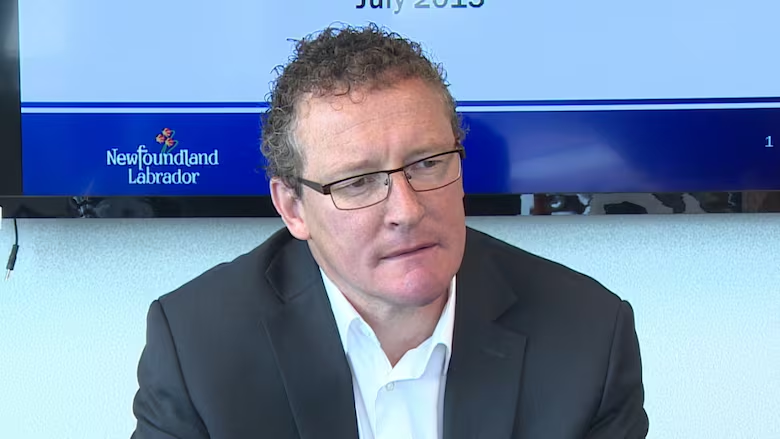Net-metering policy allows private power to go to the grid

A new initiative with the Newfoundland and Labrador government will allow small-scale electricity generating facilities to sell power back to the grid.
Natural Resources Minister Derrick Dalley announced a net-metering policy framework at a news conference Tuesday in St. John's.
The change allows individuals to generate power from renewable sources for their own consumption.
"Once the framework is fully implemented by the utilities, customers will be able to feed power into the distribution system during periods when they generate excess power and draw power from the grid when their generation does not fully meet their needs," a Natural Resources news release stated.
It will target households and small business owners rather than large-scale operations, said Dalley.
"Once we're connected up with Muskrat Falls, is there going to be new opportunities out there? I suspect there's going to be," he said.
Dalley said the timing of the announcement has nothing to do with the upcoming provincial election.
"Essentially it's ready, it's been ready for a few days and I want to get it out," Dalley said.
The province worked in consultation with Newfoundland Power, Newfoundland and Labrador Hydro and the Public Utilities Board to establish the policy.
Navigant Consulting Limited was hired by the government in 2014 to provide guidance on developing a net-metering policy.
However, one business owner said the new policies are too restrictive.
Gerry Skinner, owner of Newfoundland Energies, has been installing solar panels and windmills, mostly for cottage developments, for years.
Skinner said he welcomed the policy, but added if the objective was to kick-start a new industry, the current plan won't do much.
"I'm going say there's going be no gain to the industry moving ahead in Newfoundland. If it changes, that's fine. Maybe they'll decide to change it," he said.
The policy will now go to the public utilities to allow them to accommodate the changes, and those changes will then move on to the Public Utilities Board for approval.
Government said there's no timeline in place for that process, but Skinner suspects it will take months.